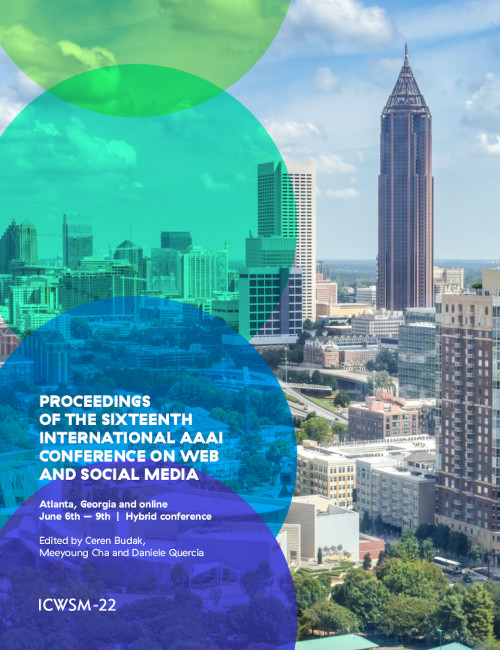Negative Associations in Word Embeddings Predict Anti-black Bias across Regions–but Only via Name Frequency
DOI:
https://doi.org/10.1609/icwsm.v16i1.19399Keywords:
Subjectivity in textual data; sentiment analysis; polarity/opinion identification and extraction, linguistic analyses of social media behavior, Psychological, personality-based and ethnographic studies of social media, Measuring predictability of real world phenomena based on social media, e.g., spanning politics, finance, and health, Studies of digital humanities (culture, history, arts) using social mediaAbstract
The word embedding association test (WEAT) is an important method for measuring linguistic biases against social groups such as ethnic minorities in large text corpora. It does so by comparing the semantic relatedness of words prototypical of the groups (e.g., names unique to those groups) and attribute words (e.g., ‘pleasant’ and ‘unpleasant’ words). We show that anti-Black WEAT estimates from geo-tagged social media data at the level of metropolitan statistical areas strongly correlate with several measures of racial animus—even when controlling for sociodemographic covariates. However, we also show that every one of these correlations is explained by a third variable: the frequency of Black names in the underlying corpora relative to White names. This occurs because word embeddings tend to group positive (negative) words and frequent (rare) words together in the estimated semantic space. As the frequency of Black names on social media is strongly correlated with Black Americans’ prevalence in the population, this results in spuriously high anti-Black WEAT estimates wherever few Black Americans live. This suggests that research using the WEAT to measure bias should consider term frequency, and also demonstrates the potential consequences of using black-box models like word embeddings to study human cognition and behavior.Downloads
Published
2022-05-31
How to Cite
Loon, A. van, Giorgi, S., Willer, R., & Eichstaedt, J. (2022). Negative Associations in Word Embeddings Predict Anti-black Bias across Regions–but Only via Name Frequency. Proceedings of the International AAAI Conference on Web and Social Media, 16(1), 1419-1424. https://doi.org/10.1609/icwsm.v16i1.19399
Issue
Section
Poster Papers

